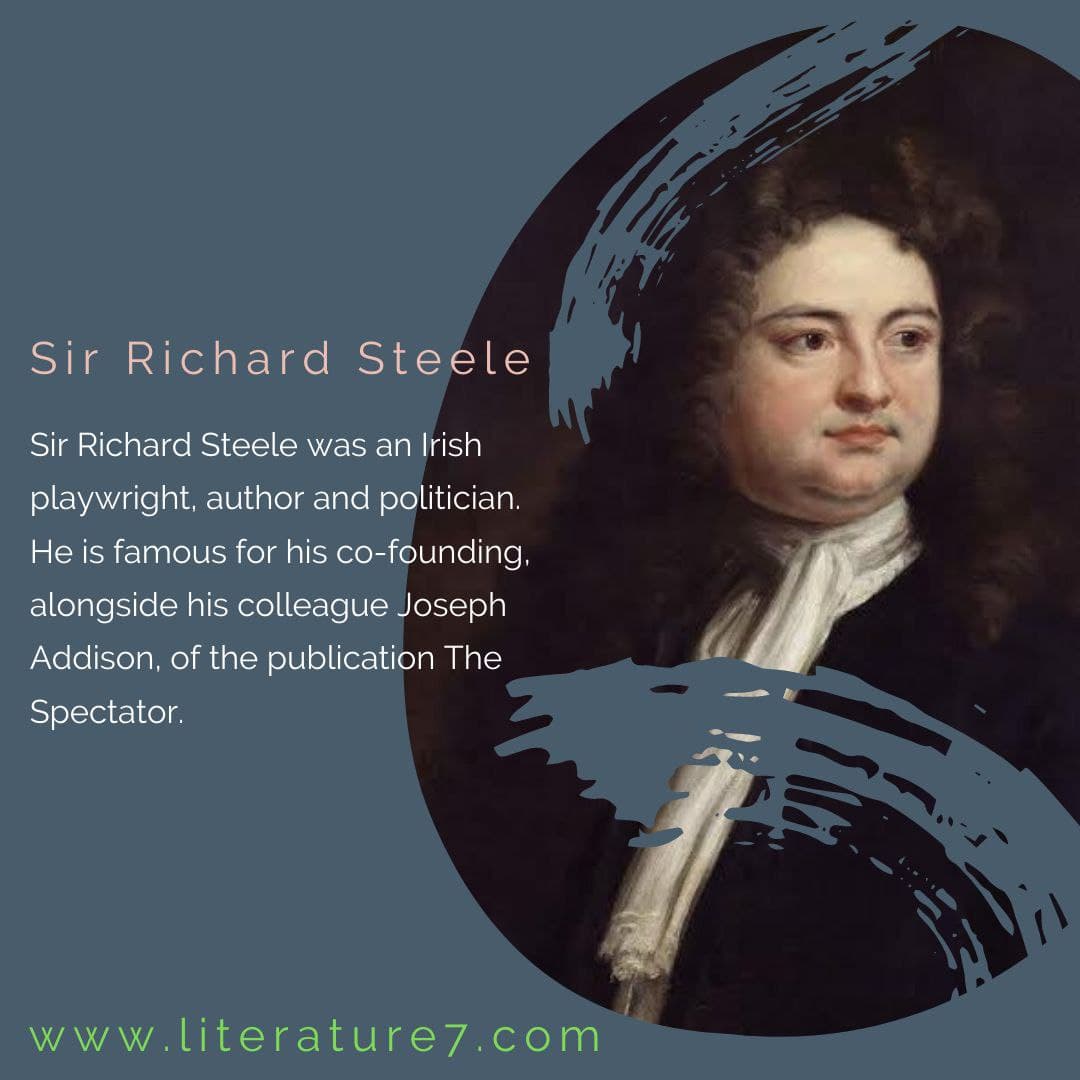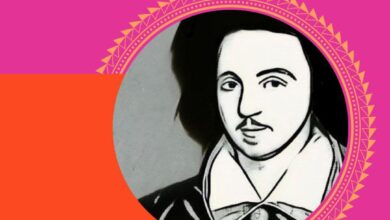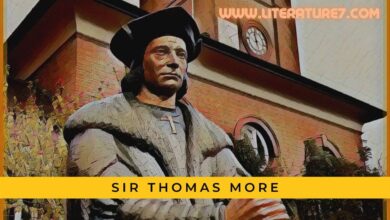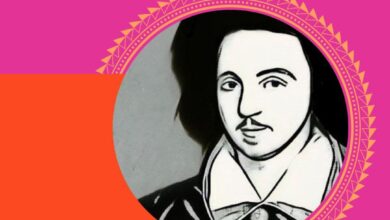Critical appreciation of the spectator club
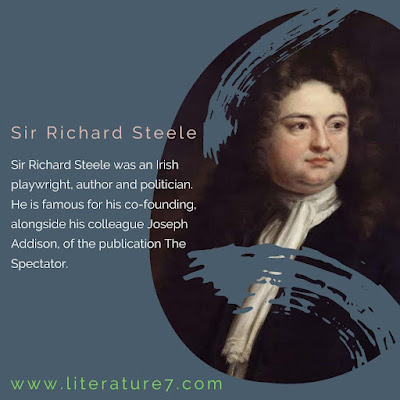
The first issue of The Spectator, the periodical created and co-authored by Steele and Addison, was published on the 1st March 1711. Much like its predecessor, The Tatler, this paper also addressed moral, social, and cultural issues.
The Spectator was intended to represent the efforts of a small group of gentlemen who come from various kinds of lives. This article The Spectator Club introduces us to the members of this group, which is also known as The Spectator Club, Sir Roger de Coverley, the country gentleman an attorney who remains secretive Sir Andrew Freeport who represents the business world Captain Sentry who was a member of the military, Will Honeycomb the townsman and the priest who is anonymous too.
Members of the Spectator Club
- Sir Roger de Coverley
- Templar
- Sir Andrew Freeport
- Captain Sentry
- Will Honeycomb
- Clergyman
Sir Roger de Coverley
In the Spectator Club, the first person to be given to the readers is the baronet from Worcestershire, Sir Roger de Coverley. Sir Roger’s sporadic eccentricities make him stand out from the rest of the men. However, these eccentricities are not caused by the whimsical nature of his character; they are the result of his discontent with society and his sincere attempts to change the way it conducts itself. The occasional odd behavior is driven by good judgment and, in all likelihood, makes him a popular figure to those around him.
Read more Chaucer’s contribution to the growth and development of the English language
When he was a young man, Sir Roger was regarded as a gentlemanly man with a stylish and active personality; however, when his outfit was turned down by a widow from the county that was adjacent to him, he went into the reclusive mode for a time and has been a bachelor ever until. While he was able to recover from his disappointment, he appeared not to be interested in taking care of him and was wearing the same doublet and coat he wore when he was facing denial.
In just one sentence, the author provides us with insight into the nature of Sir Roger’s personality “His tenants are richer and his servants appear happy, and all the young ladies are devoted to Sir Roger, and his young men enjoy his company. Sir Roger is also able to fulfill his duties as an apex court judge of the Quorum effectively and responsibly.
Templar
The Templar is the second member of the Club to be introduced. The intelligent and knowledgeable man was a student in law until he shifted his attention to theatre. In the end, he is familiar with the writings written by Aristotle and Longinus and the plays from Demosthenes and Cicero; however, he has zero interest in the law textbooks written by Littleton and Coke and the court accounts of English Courts. He is quite strict in his preferences since the books are read according to past writers’ norms. A great critique of the play, he attends the theatre each evening and, to the audience’s joy, the actors present the best performances for his review.
Read also Bacon’s Essays: A Blend of Philosophising, Moralising and Worldly Wisdom
Sir Andrew Freeport
Sir Andrew Freeport, a well-known London merchant. A logical, hardworking, and skilled, Sir Andrew believes that instead of engaging in wars to expand her territory, Britain should focus on strengthening relations with other nations by promoting trade and the arts. A friendly conversationalist Sir Andrew is convinced that honesty and hard work will bring prosperity to individuals and also to the nation.
Captain Sentry
Captain Sentry, Another participant in the Spectator Club, is now presented to us. Though he did well on the battlefield, the Captain is now living a retired life. Steele states that the military field is one in which “no man can be able to achieve the highest level of excellence and who isn’t a bit of a courtier, as well as a soldier, which means that to be able to climb within the army’s ranks,, one is required to be just as a ‘courtier’ skilled at praising superiors, as a brave man.
Captain Sentry is, however, always been a sincere person and, being a modest person, has often had a difficult time impressing his superiors with precise reports of his achievements. His bravery-filled actions during different campaigns have been overlooked, and Captain Sentry does not blame his commanders for this. He claims that he quit the army due to the fact that he did not “fit into.”
See more Spenser is at once a child of the Renaissance and the Reformation. Discuss
Will Honeycomb
Will Honeycomb, who looks like a young man despite his age because the man has led a life with a lot of ease, is uninfluenced by fortune, and has looked after himself with a high standard. His height and impeccable outfit allow him to create an elegant figure among the trendy women of society. He is well-aware of various social events as well as the changing fashions in fashion. The Club members consider Will as a “well-bred good gentleman’, even however Steele informs us in a shocking innuendo that “where women are not involved, he’s an honest and worthy man.”
Clergyman
The final one of members in the Club to be mentioned is the clergyman, who is a rare guest at meetings at the Spectator Club and, when it happens, he is a delight to all. A highly educated and well-bred individual, the clergyman is an intellectual temperament and lives an unquestionable lifestyle.
However, due to a weak constitution, he cannot take part in the actions that can cause him to be favored. Thus, he’s just as invisible as a lawyer who is not a lawyer in the court. But his sharp intellect and integrity have earned him the respect of his peers. Because the other members are older, they naturally expect the clergyman to address a spiritual (‘divine’) topic. In these instances, the clergyman speaks with great authority and with the same authority as someone who has been able to withdraw from the world and is looking towards the world of the future.
Critical Note
In the tone of Spectator or the uninterested observer who was supposed not to be a ‘real-life’ participant in the world,’ Steele not only introduces us to the characters but also offers an in-depth description of their lives extensive insight into 18th-century society.
The characters portrayed represent the typical characters of that time. Still, they are individualized- the squire who is adored by all and the young lawyer with an obsession with theatre, the businessman who’s made a name for himself and is a firm believer in hard work and thrift and an honest Captain who does not do anything to impress his Captain or the truly unworldly priest of these. The last and the first are slightly romanticized.
Though Addison’s idea to launch The Spectator, Steele is believed to be the most innovative among the two. In reality, it was entirely the idea of Steele to introduce a group of people with diverse humor and characters taking part in an imaginary event that could draw out a myriad of events or conversations.’ In actual fact, it’s often forgotten that it was Steele who wrote the first sketch of the character Sir Roger who Addison transformed to become one of the most popular character sketches in English literature.
Steele’s appeal is in his humor, which is more expansive and less oppressive than Addison’s.
See also Plot Construction of Dr. Faustus
A lawyer with an interest in theatre, he states that ‘Aristotle as well as Longinus are better known by Steele as compared to Littleton or Coke and Steele says Of Will Honeycomb: … time has made very little impression either by wrinkles on his forehead or traces on his brain… The usage of loose sentences and fresh, nearly informal, vocabulary adds to an informal, casual style. Examples of his style include “He is an excellent critic, and the time of the play is his hour of business’ and ‘When he had talked to this purpose, I never heard him make a sour expression, but frankly confess that he left the world because he was not fit for it.’
